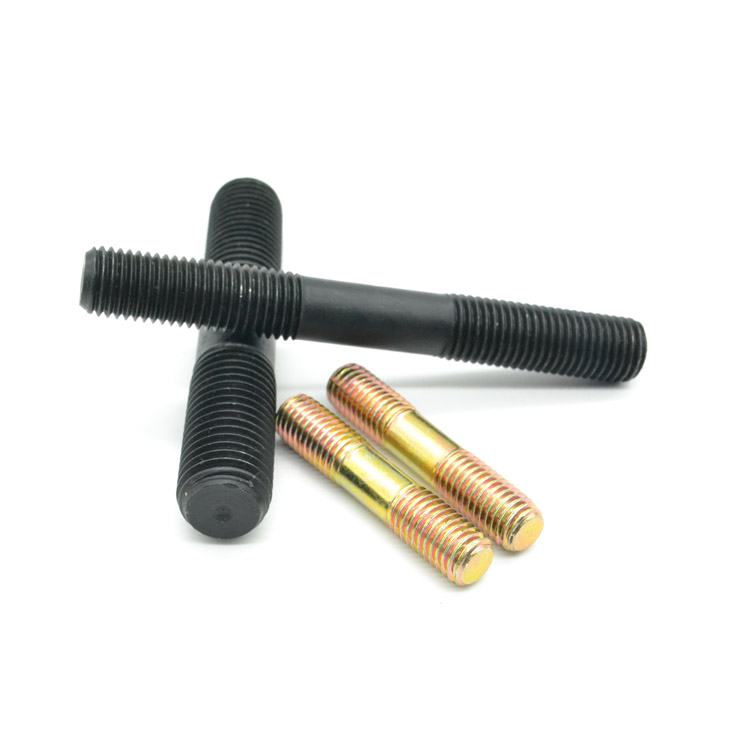security bolts factories
Oct . 19, 2024 10:55 Back to list
security bolts factories
Security Bolts Factories Ensuring Safety and Reliability
In an ever-evolving world, where security threats are becoming increasingly sophisticated, the demand for reliable safety mechanisms is at an all-time high. Among these safety mechanisms, security bolts stand out as a vital component in safeguarding properties and assets. Security bolts, designed to provide enhanced protection against unauthorized access and tampering, are essential in a wide range of applications—from residential properties to high-security facilities. In this context, the role of specialized factories that manufacture security bolts becomes crucial.
Understanding Security Bolts
Security bolts are not ordinary fasteners; they are engineered to deliver superior security features. Unlike conventional bolts, security bolts are designed to resist cutting, drilling, and twisting. They are often made from high-strength materials such as hardened steel or titanium, which significantly enhances their durability and resistance to tampering. The design of security bolts may include features such as unique head shapes that require specialized tools for removal, making them less vulnerable to common theft tactics.
Typically, security bolts are used in conjunction with other locking mechanisms, such as padlocks, door locks, or electronic security systems. Their versatility allows them to be utilized in various settings, including residential doors, commercial buildings, safes, and even vehicles. As security requirements grow, so too does the innovation seen within the manufacturing processes of security bolt factories.
The Manufacturing Process
The production of security bolts involves several intricate steps. Factories specializing in security bolts often employ advanced technologies and stringent quality control measures to ensure the final product meets high-security standards. The manufacturing process generally includes the following stages
1. Material Selection High-quality materials are essential for producing security bolts. Factories typically use alloy steel or stainless steel due to their strength and resistance to corrosion.
2. Forming and Forging The selected materials undergo forming or forging processes to shape them into bolts. These processes may involve applying extreme pressure or heat, which aligns the molecular structure of the metal for enhanced strength.
3. Heat Treatment Once formed, the bolts are usually subjected to heat treatment. This process increases the hardness of the metal and provides additional resistance to wear and deformation.
security bolts factories

4. Machining Precision machining is essential to create the specific designs required for security bolts. This step ensures that the bolts have the desired dimensions and unique features that prevent unauthorized removal.
5. Surface Finishing The surface of the security bolts may undergo treatments such as plating or coating to enhance corrosion resistance and improve aesthetic appeal.
6. Quality Control Rigorous testing and quality assurance protocols are implemented throughout the manufacturing process. This may include tensile strength tests, corrosion resistance tests, and dimensional inspections to ensure that each bolt meets industry standards.
Innovation in Security Bolts
As security threats evolve, security bolt factories are continuously innovating their products. With advancements in technology, some manufacturers are now integrating smart features into security bolts. For instance, smart security bolts can be controlled via mobile applications, allowing users to lock or unlock their doors remotely or receive notifications if unauthorized access is attempted.
Additionally, factories are exploring the use of biometrics in security bolt technology. Such innovations not only enhance the functionality of security bolts but also align with the increasing consumer demand for sophisticated, user-friendly security solutions.
The Importance of Local Production
Establishing local factories for security bolts provides significant advantages. It enables quicker response times for customers, reduces shipping costs, and promotes local economies. Moreover, local production allows for better quality control, as manufacturers can closely monitor the entire production process and adhere to local regulations and standards.
Conclusion
In conclusion, security bolt factories play a pivotal role in the modern security landscape. Through advanced manufacturing techniques and innovative product development, these factories produce robust security bolts that protect homes, businesses, and valuables across the globe. As the world faces new security challenges, the importance of these producers will only continue to grow, ensuring that safety remains a top priority for individuals and organizations alike. Investing in quality security bolts is not just a precaution; it is an essential step toward safeguarding what matters most.
Latest news
-
High-Quality Panel Stud Bolt Reliable Panel Stud Bolt Factory & Suppliers
NewsJul.08,2025
-
High-Precision Fine Thread Locknuts Manufacturer & Supplier Custom Solutions
NewsJul.08,2025
-
PH Imperial Stud Bolt – High Strength Fasteners from Leading Supplier & Factory
NewsJul.07,2025
-
High-Quality Allen Wrench Bolts Leading Factory, Company & Suppliers
NewsJul.07,2025
-
Wholesale Ball Stud Bolt - High Quality Supplier & Factory Price Reliable Wholesale Ball Stud Bolt Company
NewsJul.06,2025
-
High-Strength Alloy Bolts Manufacturer & Supplier Quality Alloy Fasteners Factory
NewsJul.06,2025
